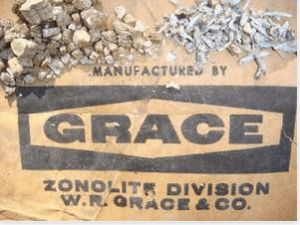Montana Creates New Asbestos Court
In 2001, the Montana Supreme Court passed a law that would establish a special claims court for individuals who developed asbestos-related diseases or died due to asbestos exposure from the now-defunct W.R. Grace and Co. mine in the town of Libby. However, the court was never activated.

There are currently 548 asbestos cases in the Montana Supreme Court’s order, the court told the Great Falls Tribune. Not all are suing W. R. Grace. Other defendants named in these suits include both the State of Montana and the BNSF Railway as well as a number of insurance carriers. Now, these cases will be effectively consolidated, the article reports, all moved into a court with just one judge.
“I think it will allow for a fair and efficient management of these cases that involve particular challenges because of the nature of the disease,” said an attorney whose firm has represented about 2,000 individuals seeking financial compensation after being diagnosed with asbestos-related disease. “The new court formation allows the presiding judge to make sweeping decisions in managing the litigation, rather than on an individual basis.,” he adds, noting that because asbestos diseases are latent and develop in various levels of severity and at various times, prioritizing cases is naturally difficult.
The court will be used for pre-trial purposes, explains the Tribune article. If no settlement is reached and the need to go to trial happens, the case will go back to the original court at that point. If settlements are able to be reached on a large batch of related cases all at one time, then plaintiffs will receive a claim based on a determined scale.
“This is the only way for these parties, and the courts which are short on staff and money, to handle these cases from start to finish” considering the amount of time they take up on an individual basis, District Judge Elizabeth Best told the Tribune.
It took this long to activate the special court only because of W. R. Grace’s declaration of bankruptcy, which protected it from claims until it emerged from the bankruptcy in 2014. In the meantime, experts estimate that hundreds have died due to Libby asbestos exposure and thousands have been sickened. There is hope that by the 2030s, cases will begin to decline.
